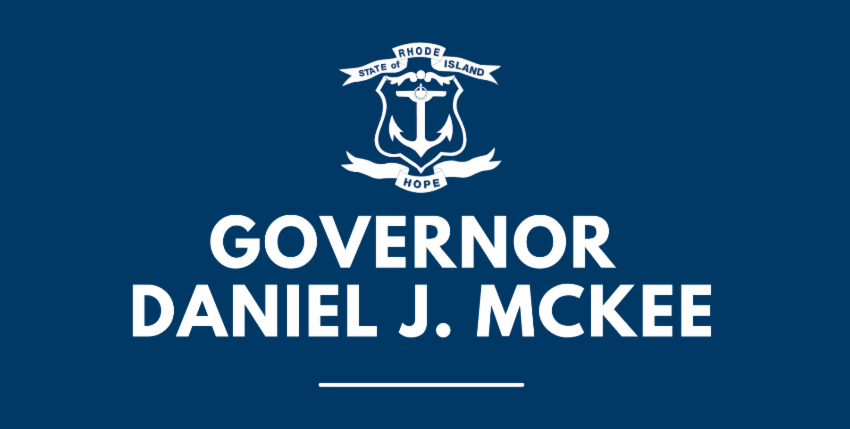Governor McKee, DHS Announce Rhode Island Rebounds Child Care Initiatives

Initiatives Include Early Educator Pandemic Retention Bonuses and Family Child Care Startup Grants
PROVIDENCE, RI – To help stabilize the child care sector and recognize the vital work of early educators, Governor Dan McKee today announced the availability of $19 million to support two Rhode Island Rebounds Child Care Initiatives. Administered by the RI Department of Human Services (DHS), the Early Education Pandemic Retention Bonus Program will provide up to $3,000 in retention bonuses to child care educators and the Family Child Care Startup Grants will help spur the opening of additional family child care facilities.
“Stable child care is the backbone of our state’s economy because families rely on child care in order to go to work,” said Governor Dan McKee. “We know the child care sector has been hit hard by the pandemic. With this investment, we will support retention of our early educators – who have been on the frontlines throughout this pandemic – and expand family child care capacity so there are more child care seats in our state.”
“With our local economy picking up momentum, these investments will not only stabilize this critical workforce but will also expand this service as Rhode Islanders are returning to work,” said Lt. Governor Sabina Matos. “Child care workers are frontline workers, educators, and in many cases entrepreneurs. These funds will go a long way towards retaining talent, rewarding hard work, and increasing capacity.”
Funded by the American Rescue Plan Act State Fiscal Recovery Fund, the Early Education Pandemic Retention Bonus Program is expected to benefit approximately 6,000 early education staff members in child care settings – a field that is still recovering from the impact of COVID-19. The Family Child Care Startup Grants will help support the opening of up to 100 newly licensed family child care facilities, increasing capacity within a child care option in high demand.
“Today’s announcement is a step towards our commitment to equity for our early child care educators – many of whom are working women of color,” said Secretary Womazetta Jones. “These dedicated essential workers keep our young children educated and safe while allowing parents to work and stimulate the Rhode Island economy.”
The child care sector has faced numerous challenges, leading to wide ranging repercussions for Rhode Island families, the labor market, and the broader economy.
Early educators at child care centers earned approximately $24,000 a year, according to a 2021 Rhode Island Market Rate Survey. Due to the current job market, providers have reported difficulty in retaining staff that has resulted in fewer children served, longer waitlists, and reduced operating hours.
“Our child care providers deserve to be recognized and appreciated for their crucial support to families during the public health emergency. Their contributions to children are immeasurable because they help children develop social, emotional, and communication skills that are so important during the early brain development years,” said DHS Acting Director Yvette Mendez. “We’re thrilled to see these investments go to child care and thankful for the Governor and General Assembly’s leadership on this issue.”
In order to be eligible for the Early Educator Pandemic Retention Bonus when the first application window opens during the week of March 14, 2022, early educators must have been employed at child care facilities for at least 6 months at the same licensed program as of December 1, 2021. During the second application window that opens the week of May 30, 2022, eligibility is based on 6 continuous months of employment in child care – with the same provider – as of June 1, 2022.
Eligible educators will receive $1,500 stipends in each application window. This initiative was informed by child care advocates, legislators, State leadership, and the decisions of child care providers, who overwhelmingly used 20 percent of their first Child Care Stabilization Fund Grants in 2021 to provide educators with an average spot bonus of $718. These direct investments in the workforce will help ensure early educators have equitable access to bonuses regardless of program size and mirrors successful programs in other states.
Providers seeking to participate in the Family Child Care Startup Grants to open a family child care program may receive a $2,000 start-up grant. The grants can be applied to cover expenses such as insurance, health and safety items, quality improvement items, and repairs. Grant recipients will also receive technical assistance to pursue licensure and help to establish their new small business. Applications for the startup grants will be available during the week of March 28.
More information will be available online when the application window opens here. Anyone who needs assistance or has questions regarding this initiative should reach out to DHS.Childcarelicensing@dhs.ri.gov.